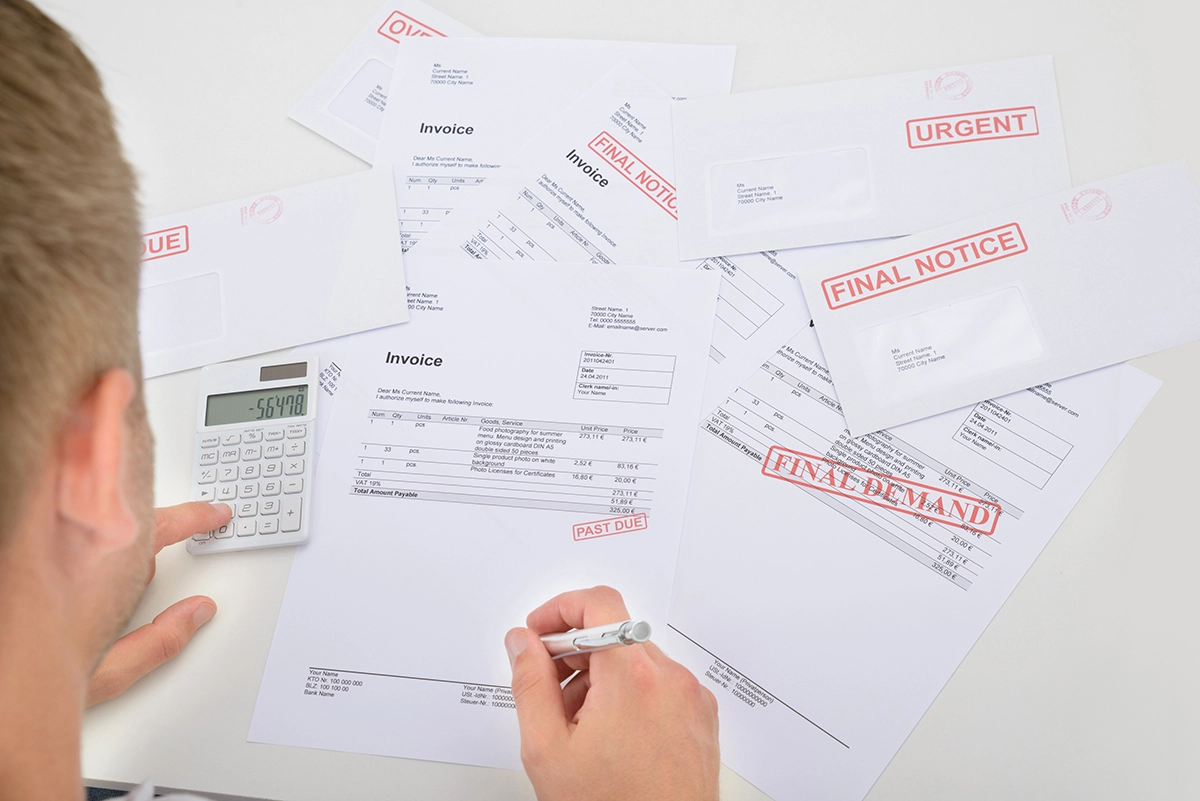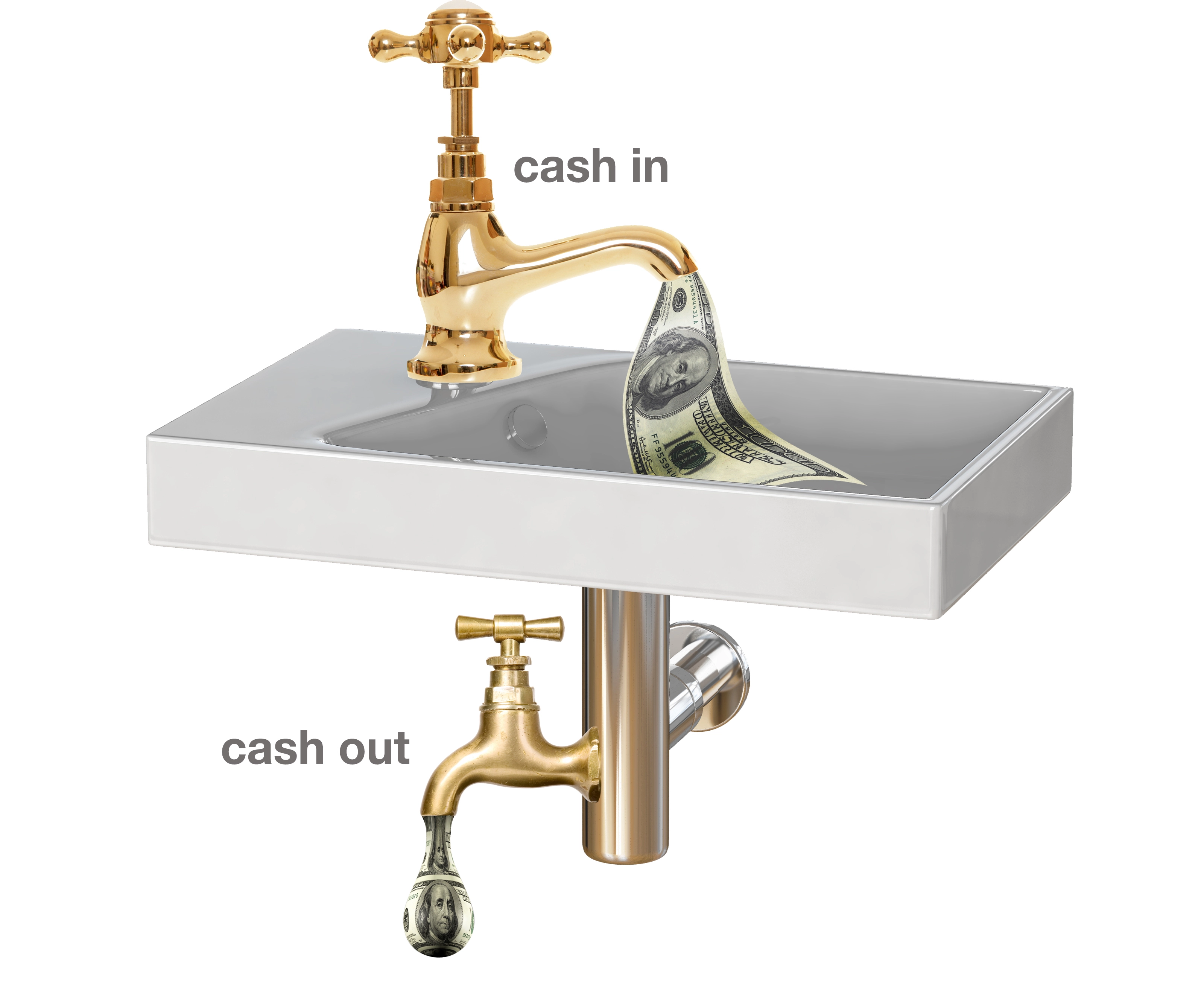If you don’t have the cash to make payroll it doesn’t matter what your sales are.
Many contractors are more concerned with making the sale rather than collecting the money for that sale. But if you don’t collect on those sales, you can’t pay your bills.
Here’s how you can be profitable and go bankrupt because you didn’t collect your receivables:
A contractor was very profitable and had been for many years. He paid his bills on time and was current with all of his suppliers. One week, this company’s three biggest customers declared bankruptcy.
These customers represented more than $1,000,000 in receivables owed to his company. He didn’t have the cash to recover from these receivable losses so he went out of business too.
Before you ask whether those customers were bonded, it didn’t matter. Getting paid from a bonding company takes months — if you ever get all of the money owed to you. This company didn’t have the cash to wait.
In addition, if you have been paid by those businesses who declared bankruptcy in the past 90 days, the bankruptcy court can require you to give the court the monies that you got if other creditors were not paid (this happened to a client).
Bankruptcy of your customers, if they represent more than 20 percent of your revenues, can put your company out of business. Even though you have a profitable company, when your customers’ businesses close without paying you — if you have not built cash reserves — you might be faced with the inability to pay your bills.
You cannot pay bills and payroll with profits. You must have cash.
So, what can you do to prevent this from happening? The critical thing is to watch your sales, collections and payables each week. If you’re like most contractors, you don’t have a lot of time to deal with these issues. You don’t have to deal directly with them — delegate the tasks and oversee the actions.
Restaurants, supermarkets and retail stores are all COD. Can you imagine walking out of the grocery store without paying?
For residential work, all service is COD. For replacements, unless financing has been approved, get the maximum deposit allowed by the laws of your state and require payment when the job is completed.
This should be part of the sales process and stated in the accepted proposal. Then you have the get the signed paperwork and submit it the day after the work is completed so you get your money. Over the years, I’ve seen too much financing paperwork sitting on desks weeks after the work has been done. It’s the cash you need to pay payroll and your bills.
For commercial, accounts receivable are a way of life. Until a customer establishes credit, the work is COD.
In addition, for larger projects, at the beginning of the project with a new customer, your bookkeeper or other accounts receivable team member should call the accounting department of your new customer. Get to know that person and ask what requirements that company has to get paid on time.
You are establishing a relationship so if there is a problem getting paid at some point, you know who to call and can have an initial friendly conversation.
In addition, make sure your company takes credit cards for payment and have clear payment terms. And, when that 30 days is up and you haven’t received a check, then someone needs to make a phone call to the accounting person you have established a relationship with. Ask whether you can put the amount due on a credit card. Many times, your customer will say, “yes.” Then you have your money quickly.
Watch your cash each week. Your bookkeeper should print a weekly cash flow report for you to review each Friday (Wealth Rule No. 5).
The key to the cash flow report is the weekly projection. It tells you how much money you can expect to come in the door the next week and what you expect to pay. If you don’t have enough to cover all of your bills, then someone needs to start making telephone calls to people who owe you money.
That person does not have to be you … it might be your bookkeeper. Just remember, unless you direct someone to make those telephone calls and follow up with you, these telephone calls won’t get made.
It is important to do an accounts receivable and accounts payable aging each week to estimate the money coming in and the money going out. This way, on at least a weekly basis you are keeping track of where you are financially.
And it doesn’t need to take up much of your time or your bookkeeper’s time. Once the flow of information needed to complete these sheets is set up and running smoothly it should only take ten to fifteen minutes each week to create this critical business management document.
Sales count. Profits count. But they are worthless if you don’t collect the money those sales and profits generated.






